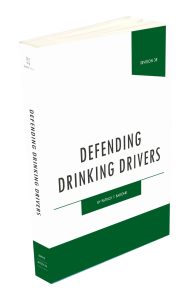Search
Marijuana Use Not Relevant to Sentencing in Michigan Intoxicated Driving Causing Death Case
In this Michigan Intoxicated driving causing death, the defendant Willett entered a no contest plea thereby admitting that he was operating a motor vehicle with the presence of any amount of marijuana in his body, and that the operation of his vehicle caused the death of another, under Michigan Compiled Laws § 257.625(4)(a)and (8).
Mr. Willett was sentenced to 4 to 15 years of imprisonment. Prior to sentencing the defendant, the court questioned him about his marijuana use, and the defendant, then 21 years of age, admitted he used marijuana daily and had started using marijuana at age 14 or 15. The court concluded the pre-sentencing colloquy by admonishing the defendant and stating to him that it was his use of the drug that lead to the horror of the accident and death. On appeal the defendant argued that the court’s sentence was based on inaccurate information, and the Michigan Court of Appeals agreed. The case was reversed and remanded.
The facts of this case include an admission from the defendant, at the roadside, that while he was driving, he was getting sleepy and closed his eyes. He crashed into the car in front of him immediately after opening his eyes, creating a multi-vehicle accident leading to the death of one of the vehicle’s occupants.
 Michigan Criminal Defense Lawyer Blog
Michigan Criminal Defense Lawyer Blog


